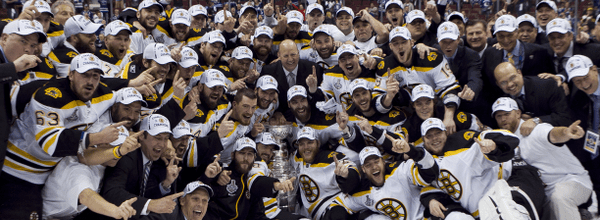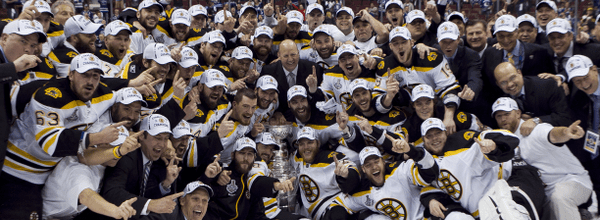Karma Proves a Killer for Canucks


If the 2011 Stanley Cup Final proved anything, it’s that karma’s a bitch.
The Vancouver Canucks had this series in the bag. Two hard-fought, emotional wins at home to open the Final left them only 2 wins away from securing their franchise’s first Cup victory in 41 years.
They somehow managed to escape the wrath of the league, and the Bruins, after Alex Burrows’ petulant finger bite of Patrice Bergeron in Game 1. No suspension, and two subsequent goals by Burrows in Game 2 (including the OT Game Winner), and the taunted Bruins were left scratching their heads wondering if fate was no longer on their side, down 0-2 in the series.
The momentum was entirely with the Canucks. The Bears returned to Boston in hibernation mode. That was, until Aaron Rome woke them out of their sleep and back into the series.
As predicted, Rome’s late hit on Nathan Horton in the 1st Period of Game 3 completely changed the complexion of the series. Despite their series lead and obvious edges the Canucks held over the Bruins on paper in overall speed and skill, within a blink of an eye and a blindside shoulder to Horton’s head, those advantages were completely nullified. The culmination of that hit, with Boston ultimately losing their second-leading scorer in the process, gifted the Bruins the biggest advantage of all – desire.
Following that cheapshot, the Bruins found themselves on a newfound mission – to win for their fallen teammate, while not allowing the Canucks to take any more liberties at their expense.
Right then and there, Vancouver handed Boston all the motivation they would need to win. But the Canucks didn’t stop there.
Vancouver Head Coach Alain Vigneault certainly didn’t do himself or his team any favors in the aftermath of Rome’s hit in Game 3. His stupefying decision to leave a humiliated and shaken Roberto Luongo in net for all 8 goals in Game 3’s turnaround 8-1 rout by Boston re-exposed a weakness in Bobby Lou’s mental game, last seen during his near-meltdown in the first round vs. Chicago. And unlike that series, where the Canucks and Luongo managed to barely escape with an overtime victory in Game 7 after building a 3 games-to-none lead, this time around they clearly wouldn’t be so lucky.
The comedy of errors for Vancouver continued. Following Game 5’s impressive 31-save shutout performance to give the Canucks back the series lead, Luongo followed up Vigneault’s questionable decision making with a blunder of his own.
He opened his big mouth.
Luongo’s suggestion to the media that he would likely have stopped the lone goal given up by roaming Bruins’ netminder Tim Thomas in Game 5 was a pretty classless move for starters. But, more significantly, it placed a lot of unnecessary scrutiny and pressure back on Luongo, just when it appeared for the moment as if he had regained his form following back-to-back blowout losses in Boston.
Thomas, meanwhile, seized the moment and took over the series from that point onward. Despite being much maligned by Luongo and others throughout the early part of the series for over-committing on shots and venturing too far out of his crease, the 37-year old native of Flint, Michigan would steal the show in the Cup Final’s latter stages.
The unflappable veteran would go on to allow a mere 8 goals the entire series (an NHL record), posting a .940 SV% and 1.98 GAA for the playoffs. Certainly good enough for Thomas to become the 2nd US-Born player to capture the Conn Smythe Trophy.
On the other hand, didn’t it seem a tad ironic that Luongo who was caught out of position and scrambling to get across the crease on Brad Marchand’s back-breaking wraparound 2-0 goal in Game 7? Now, following his epic failures in Game 6 and 7, it’s hard to even say for sure where Bobby Lou’s career goes from here.
And I’d be remiss not to mention the Sedins in all this, both of whom utterly disappeared in the Cup Final as soon as the going got tough. All of which made Daniel’s Game 7 public guarantee of a Canucks’ win even more strange, especially when you consider that he backed down from his comments the following day, and then backed it up with a pitiful zero point, minus-4 effort the day after that (Henrik was also a minus-4 in Game 7).
Now that it’s all said and done, Boston’s victory in seven games over Vancouver was truly one for the ages. Call it a great comeback. Call it a giant collapse. Or just call it poetic justice.